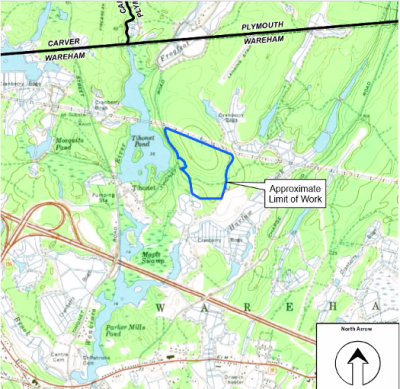Planning Board fears dark future for obsolete solar panels
$267,000. That is how much it would cost, per megawatt, to decommission the panels of the planned solar fields on 150 Tihonet Road and 27 Charge Pond Road once they can no longer produce electricity — far higher than what the Planning Board initially thought and what representatives of the solar fields initially estimated.
“The cost of disposal is not trivial,” said Board Vice-Chair Carl Schulz at Monday, Nov. 28’s meeting. “The assumptions about being able to recycle… are not proving out at the moment. I’m concerned about these things.”
The Planning Board spent a large portion of Monday’s meeting grilling Jared Connell of New Leaf Energy and Greg Samson of the Womble Bond Dickinson law firm about the financial and environmental impact of the solar panels once they become obsolete. It was a difficult conversation to have, because, as Connell said, “There’s no ability to go out and ask somebody for a quote of what something’s going to cost 30 years from now.”
The most recent estimate on decommissioning costs is two years old.
“A lot has happened in two years,” Board Chairman Michael King said.
“Ten years ago, there was not a single ground-mounted solar panel around here,” Planning Board Associate Member Sherry Quirk said. “Now, we’re inundated. And they are all going to be obsolete at the same time.”
According to Quirk, this will result in one of two outcomes; either there will be a huge boon for the recycling market, or the town will be surrounded by worthless and even harmful materials that cannot be recycled.
“You’re here proposing solar in the name of the planet,” King said, “but we don’t know if 20 years from now, we’ll have things that are damaging the planet.”
King wanted specific information on where and how the panels would be recycled. Quirk and Schulz wanted to know much more about the costs of the panels themselves.
“Are other towns challenging your costs?” Schulz asked.
Connell said that the process of discussing and approving the solar facilities has been similar in every town.
“There’s significant scrap and salvage value in a lot of the materials that are there,” he said.
The Planning Board had no interest in salvage value.
“Solar’s a part of our world now,” King said. “There’s no getting around it… What’s going to be left behind 20 years from now, that’s the part I’m concerned about.”
Schulz, who wanted to “take a hard look” at costs, received “some comfort” from the idea of periodically reviewing and negotiating the costs with Connell and Samson. With that in mind, discussion of the solar fields was continued to Dec. 12.
Decommissioning costs are of no concern to the Planning Board, except in the event that the town takes over the decommissioning process. Other than that, Schulz told Connell and Samson, “it’s your problem, and that’s great.”
















